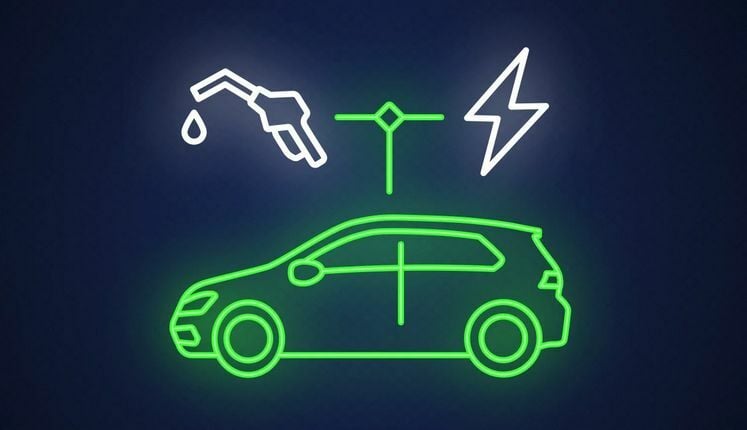Shifting gears: Thai interest charges towards hybrids, veers from EVs

Interest in battery electric vehicles (BEVs) among Thai consumers has declined over the past year, while hybrid electric vehicles (HEVs) have gained popularity, according to a survey conducted by Deloitte.
The 2024 Global Automotive Consumer Study indicates that the percentage of Thai respondents interested in purchasing a BEV has dropped to 20% this year from 31% in 2023. Conversely, interest in HEVs has risen to 19% from 10%. Despite this shift, internal combustion engine (ICE) vehicles continue to be the top choice, though their preference has also decreased, falling to 32% from 36%.
This trend of declining ICE preference among Thai consumers is consistent with patterns observed in Indonesia, the Philippines, and China. However, it contrasts with the United States, Japan, and Singapore, where ICE vehicle popularity has seen a resurgence.
The survey involved over 27,000 consumers from 26 countries between September and October 2023, with about 5,939 respondents from Southeast Asia, including approximately 1,000 Thai consumers. Additionally, Deloitte Thailand conducted a supplementary Thailand Automotive Consumer Survey in April 2024, polling 330 consumers.
The reasons behind Thai consumers’ preference for BEVs include a desire to save on fuel costs (73%), concerns about environmental impact (71%), and prioritising health and maintenance savings (49%).
For those choosing HEVs, the motivations are similar with 73% of respondents wanting to save on fuel costs, 68% aiming to reduce range anxiety, and 37% wishing to lessen dust, smoke, and greenhouse gas emissions.
Range remains a concern
Consumers opting for ICE vehicles primarily seek to reduce range anxiety and charging concerns (78%), avoid unexpected costs such as battery replacements (67%), and maintain flexibility in maintenance and customisation options (52%).
The survey reveals an overall decrease in concerns among Thai consumers regarding BEVs between 2023 and 2024. The most significant concern remains the insufficient availability of public charging stations, cited by 46% of respondents, only slightly down from 48% the previous year.
Concerns about driving range have diminished from 44% to 39%. Additionally, Thai people are becoming more accustomed to longer charging times, with 38% of respondents now finding a charging duration of 21 to 40 minutes acceptable, up from 25% in 2023.
Home charging remains the preferred option in Southeast Asia, while preferences for out-of-home charging among Thai consumers have shifted. The popularity of petrol stations as charging points has increased from 26% last year to 34% this year.
The charge-anywhere option has seen a significant rise in popularity, from 5% to 29%. Meanwhile, dedicated BEV charging stations have declined in preference, from 51% to 21%. There has also been a slight upward shift in the preferred charging range per charge, with 44% of respondents now favouring a range of 300 to 499 kilometres.
When it comes to factors influencing car purchase decisions among Thai consumers, pricing has become increasingly significant, rising from 18% in 2023 to 47% in 2024. Performance has also gained importance, climbing from 26% to 51%. The significance of vehicle features has steadily increased, with 53% of respondents in 2024 considering them crucial, compared to 49% in 2023.
Importance of quality
Product quality remains the top factor influencing Thai car purchases, although it has seen a slight decrease from 64% to 53%. Brand familiarity and image have also shown minor declines, with 31% of respondents considering brand familiarity important, down from 33% in 2023, and 34% finding brand image important, compared to 37% in 2023.
The survey found that 64% of Thai respondents are open to trying new car brands, placing them among the highest in the region, alongside Malaysia and trailing Vietnam and the Philippines. This openness is driven by access to new technologies (52%), the allure of novelty (49%), and affordability (36%).
Despite the availability of immersive technologies like virtual or augmented reality (VR/AR) for exploring car features and online financial transaction options, 92% of Thai buyers still prefer to experience the car physically before making a purchase decision. Furthermore, 91% consider test drives and negotiating with a salesperson essential.
Meanwhile, 74% of Thai consumers find instalment plans a convenient way to pay for their vehicles, while 21% prefer cash purchases and 5% opt for balloon payment plans. Notably, the younger generation (aged 18 to 34) shows a higher interest in vehicle subscription services, mentioned by 47% of respondents, compared to traditional car ownership.
Eighty-two percent of Thai respondents consider maintenance costs and parts prices to be crucial factors when choosing a car model. Additionally, 63% are willing to purchase comprehensive maintenance packages that cover engine oil, consumable parts, and service fees. Among those considering BEVs, 84% are interested in battery accident insurance, reported Bangkok Post.
Latest Thailand News
Follow The Thaiger on Google News:


























